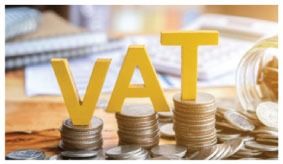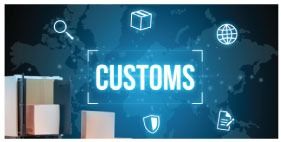![]() Admin
Admin
![]() September 25, 2025
September 25, 2025
![]() (0) Comment
(0) Comment

![]() Admin
Admin
![]() September 25, 2025
September 25, 2025
![]() (0) Comment
(0) Comment
The Governor of Bangladesh Bank has stated in a recent conference that the country aims to become a major cashless economy within the next 7-8 years. He emphasized that transitioning to a cashless system is essential to curb corruption and tax evasion, which are often facilitated by cash transactions. The Governor stressed the immediate need to move away from cash-based transactions.
Our Honourable Finance Adviser instructed the district commissioners to bring under the tax net those doctors in districts, sub-districts, and rural areas who have substantial income but have been evading taxes. Speaking to journalists, the Honourable Adviser said that initiatives are being taken to ensure that doctors and lawyers are brought under the tax net by making it mandatory to issue receipts or to use digital payment methods for their fees.
We are all aware of the size of Bangladesh's informal economy. Due to cash transactions, many accounts cannot be easily verified. If business transactions can be conducted through a cashless system, the overall economy will become more transparent, and the size of the formal economy will expand. In this regard, Bangladesh Bank should sit with business representatives to take initiatives for introducing a cashless system. To implement a cashless economy, sufficient investment must be made in improving information technology infrastructure. If a Unified Payment Interface (UPI), similar to those in neighbouring India and other nearby countries such as Malaysia, Singapore, and Vietnam, can be ensured, transactions through various banks and mobile financial services (MFS) could be facilitated via a single platform. However, will ensuring a cashless economy alone necessarily increase tax collection?
At present, there is no alternative to a cashless economy. However, alongside this, intra-operability must be ensured among the various divisions of the revenue system (Income Tax, VAT, and Customs). Inter-operability must also be established by connecting the National Board of Revenue's system with the databases of other institutions/authorities.

Intra-operability
Income Tax: At present, the online income tax system includes modules for e-TIN, e-TDS, PSR, and individual income tax returns. However, several modules are outdated and cannot be integrated with the current system. In addition, key modules - such as corporate income tax returns, audit, appeals, tribunal, High Court, ADR, and routine operations - have yet to be developed.
A comprehensive system must be designed to ensure seamless integration not only among all income tax modules, but also with the VAT and Customs systems, as well as with the databases of other relevant institutions and authorities.
VAT (Value Added Tax): Currently, VAT registration, VAT return submission, and the filing of Form 4.3 can be completed online. However, other critical modules - such as automated generation of purchase and sales invoices from invoicing software (e invoicing), audit, appeals, tribunal, ADR, and routine operations - are yet to be brought under the online system. Full automation will only be achieved once these modules are integrated.
 The introduction of a cashless transaction system would enable automatic detection of taxable transactions. When a business exceeds the VAT threshold, the system could instantly identify it and notify the nearest VAT office. Past attempts to enhance VAT collection through the installation of additional devices (EFDMS) have not yielded success over many years. Instead of relying on such devices, it is necessary to mandate cashlessn transactions. This would allow businesses to be brought under registration more quickly and make VAT collection from registered entities more efficient.
The introduction of a cashless transaction system would enable automatic detection of taxable transactions. When a business exceeds the VAT threshold, the system could instantly identify it and notify the nearest VAT office. Past attempts to enhance VAT collection through the installation of additional devices (EFDMS) have not yielded success over many years. Instead of relying on such devices, it is necessary to mandate cashlessn transactions. This would allow businesses to be brought under registration more quickly and make VAT collection from registered entities more efficient.
Moreover, VAT collection data would directly support more effective income tax collection. For large businesses, the implementation of e-invoicing would further simplify VAT collection and facilitate accurate verification of input tax credits.
Customs: At present, several modules of ASYCUDA and the National Single Window (NSW) are operational. The National Board of Revenue (NBR) deserves recognition for launching parts of the NSW, albeit later than planned. However, full implementation of all remaining modules is essential to maximise the benefits of these systems. For example, activation of the Valuation Module would ensure that the same product is assigned the same customs value across all customs stations. This module requires detailed product descriptions and prevents completion of the clearance process without following prescribed procedures, thereby ensuring accurate and transparent valuation.
 Full interoperability must be established among all modules of Income Tax, VAT, and Customs so that, if a taxpayer's VAT Online or ASYCUDA import data conflicts with audit reports, the system can
Full interoperability must be established among all modules of Income Tax, VAT, and Customs so that, if a taxpayer's VAT Online or ASYCUDA import data conflicts with audit reports, the system can
automatically detect the discrepancy. In addition, all income tax and VAT returns should be filed exclusively online. The practice of submitting returns in person at tax offices should be legally
discontinued to ensure efficiency, transparency, and uniform compliance.
Inter-operability
We often see in the media that certain individuals possess 300 acres of land, 10 apartments, large sums of money in numerous bank accounts, and other assets which remain undisclosed in the statements submitted to tax officials. A major weakness in our tax system is this lack of inter operability. At present, a taxpayer cannot conceal assets such as motor vehicles and savings certificates, as these are already connected via APIs. But how can the remaining asset categories be linked?
Owners of apartments within city corporation areas are required to pay holding tax. It should be made mandatory to provide e-TIN/NID information on the holding tax receipt/system. The city corporation would subsequently send apartment ownership data, based on e-TIN/NID, to the National Board of Revenue (NBR). This is a short-term measure. In the long term, the systems must be interconnected via APIs.
Land development tax can now be paid online. It should be made mandatory to provide e-TIN/NID information on the land tax receipt/system. The land office would then send land ownership data, based on e-TIN/NID, to the NBR. This is also a short term measure. In the long term, the systems must be interconnected via APIs.
Gradually, the NBR's systems must be interconnected in real time via APIs with banks, financial institutions, the Registrar of Joint Stock Companies and Firms (RJSC), and the Bangladesh Securities and Exchange Commission (BSEC). This will enable the NBR to verify, on an e-TIN basis, the total assets, income, and expenditure of taxpayers.

Infrastructure
Institutional: In the organisational structure of the National Board of Revenue (NBR), the required number of personnel and their specialised qualifications must be determined for carrying out various IT-related responsibilities. It is essential to recruit an adequate number of software and hardware specialists, human resource specialists, finance specialists, and research specialists.
Physical: The NBR must ensure proper physical infrastructure and, for the development of information technology infrastructure, arrange for the required number of computers, software, networking devices, servers, and data storage facilities. A sufficient budget must be allocated for the maintenance of these systems.
To carry out the above activities, an appropriate budget allocation must be ensured, and adequate funding must be provided on a continuous basis for their operation and refurbishment.
Benefits:
(a) Preventing tax evasion will become easier, ensuring a level playing field.
(b) Due to automation, compliance-related tasks and travel requirements for businesses will be reduced, lowering the cost of doing business. Eliminating the need for in-person visits will also reduce the possibility of unethical transactions.
(c) Routine work for revenue officials will decrease. Alongside reducing government salary expenses, officials will be able to focus on auditing the right entities and collecting higher revenues.
In the past, many initiatives were taken to implement a cashless economy, but none yielded satisfactory results. Even the cashless conditions introduced three years back for reduced corporate tax rate for other than listed companies have been withdrawn through Finance Ordinance 2025. The National Board of Revenue (NBR) has developed separate software systems for income tax, VAT, and customs, but these too have failed to deliver the expected outcomes. Therefore, the time has come to formulate an integrated IT plan - including a Unified Payment Interface (UPI) - to be implemented by domestic IT firms under the supervision of foreign consultancy organisations as part of a master plan.
Some believe that full automation will cause the economy to collapse. It is true that managing the initial shock will be challenging, but with a long term plan, taking into account the realities faced by businesses and engaging them through dialogue and partnership, implementation is possible. Based on public opinion, the revenue system - and indeed the economy - of the new Bangladesh under this interim government will be built on a strong foundation and will yield long-term benefits.